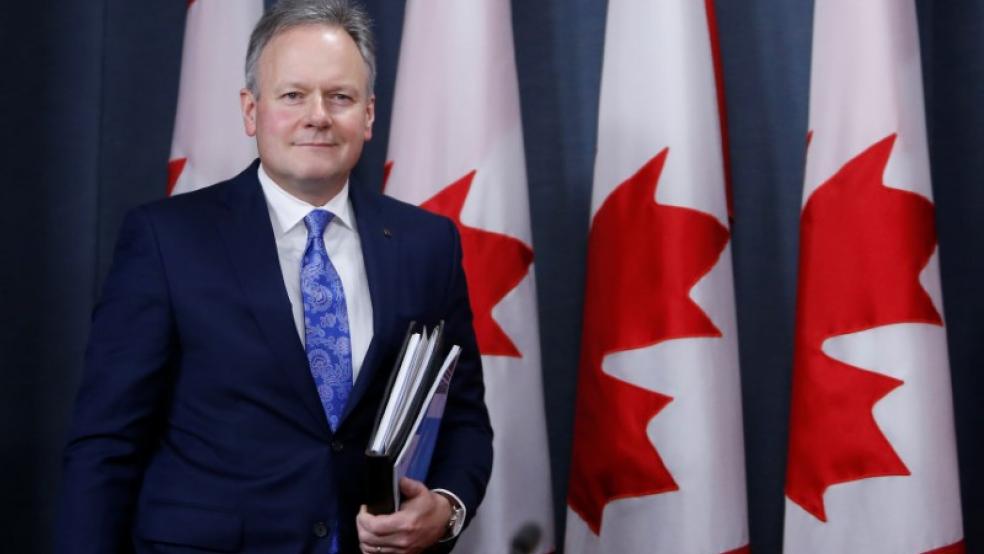OTTAWA (Reuters) - The Bank of Canada raised interest rates on Wednesday, as expected, but said that while more rate hikes are probably warranted, some continued monetary policy accommodation will likely be needed to maintain optimal growth and inflation.
The third rate increase in seven months took borrowing costs to their highest level since 2009, but the bank's cautious tone on the future of NAFTA trade pact accomplished the so-called dovish hike that many analysts had predicted."While the economic outlook is expected to warrant higher interest rates over time, some continued monetary policy accommodation will likely be needed to keep the economy operating close to potential and inflation on target," the bank said.The future of the North American Free Trade Agreement, which U.S. President Donald Trump has threatened to terminate, was the most significant downside risk cited by the bank in an otherwise bullish report on the outlook for Canada's economic growth.The rate hike acknowledges that recent data has come in stronger than the bank had expected, inflation is close to its 2 percent target, and the economy is now operating at full potential with no output gap. Still, it noted that potential is growing, which could give Canada more room to grow without triggering inflation, which lessens the need for rate hikes.The central bank raised its forecast for GDP growth and inflation in 2018, noting stronger-than-expected consumption and residential investment, and said business investment and exports are expected to contribute more to growth going forward. It also said labor market slack is being absorbed more quickly than anticipated.Still, while the bank's forecasts looked relatively robust, its cautious tone signaled policymakers will not rush their efforts to return rates to more normal levels after they were slashed to historic lows in the wake of the financial crisis.The bank said that trade uncertainty is expected to cut investment by about 2 percent by the end of 2019, while U.S. tax reforms will trim another 0.5 percent as firms may decide to redirect spending from Canada to the United States to benefit from lower corporate taxes. While strong hiring and elevated consumer confidence continues to boost growth, higher rates and mortgage rule changes should dampen consumption and residential investment, the bank said. It continued to cite a housing correction in the overheated Vancouver and Toronto markets as a risk, but said direct spillovers to the rest of the country would be modest. (Editing by Bernadette Baum)Bank of Canada hikes rates, says accommodation still needed

Chris Wattie



